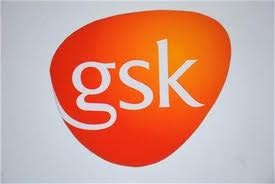
In this series, we’ll highlight four companies in an industry, and compare their “cash king margins” over time, trying to determine which has the greatest likelihood of putting cash back in your pocket. After all, a company can pay dividends and buy back stock only after it’s actually received cash — not just when it books those accounting figments known as “profits.”
Today, let’s look at Novartis AG (ADR) (NYSE:NVS)and three of its peers.
The cash king margin
Looking at a company’s cash flow statement can help you determine whether its free cash flow actually backs up its reported profit. Companies that can create 10% or more free cash flow from their revenue can be powerful compounding machines for your portfolio. A sustained high cash king margin can be a good predictor of long-term stock returns.
To find the cash king margin, divide the free cash flow from the cash flow statement by sales:
Cash king margin = Free cash flow / sales
Let’s take McDonald’s as an example. In the four quarters ending in December, the restaurateur generated $6.97 billion in operating cash flow. It invested about $3.05 billion in property, plant, and equipment. To calculate free cash flow, subtract McDonald’s investment from its operating cash flow. That leaves us with $3.92 billion in free cash flow, which the company can save for future expenditures or distribute to shareholders.
Taking McDonald’s sales of $25.5 billion over the same period, we can figure that the company has a cash king margin of about 14% — a nice high number. In other words, for every dollar of sales, McDonald’s produces $0.14 in free cash.
Ideally, we’d like to see the cash king margin top 10%. The best blue chips can notch numbers greater than 20%, making them true cash dynamos. But some businesses, including many types of retailing, just can’t sustain such margins.
We’re also looking for companies that can consistently increase their margins over time, which indicates that their competitive position is improving. Erratic swings in margins could signal a deteriorating business, or perhaps some financial skullduggery; you’ll have to dig deeper to discover the reason.
Four companies
Here are the cash king margins for four industry peers over a few periods.
| Company | Cash King Margin (TTM) | 1 Year Ago | 3 Years Ago | 5 Years Ago |
|---|---|---|---|---|
| Novartis AG (ADR) (NYSE:NVS) | 20.0% | 20.4% | 22.9% | 36.6% |
| Merck | 17.1% | 22.2% | 7.0% | 24.7% |
| GlaxoSmithKline plc (ADR) (NYSE:GSK) | 12.6% | 19.5% | 22.6% | 20.4% |
| Pfizer Inc. (NYSE:PFE) | 26.7% | 28.5% | 31.2% | 23.7% |
Source: S&P Capital IQ.
While Pfizer Inc. (NYSE:PFE)’s cash king margins come in at a whopping 26.7%, it has seen gradual declines in those margins over the past three years. However, it still manages to offer a 3.4% yield. Novartis AG (ADR) (NYSE:NVS) also offers high margins, double our 10% threshold. However, its margins have declined steeply over the past five years. Still, the company offers a 3.6% yield. Merck and (NYSE:MRK) GlaxoSmithKline plc (ADR) (NYSE:GSK) also meet our standard, but both of them also offer lower margins than they did five years ago. Dividends here are higher still: Merck at 3.9% and GlaxoSmithKline plc (ADR) (NYSE:GSK) at 6.1%.
Novartis AG (ADR) (NYSE:NVS)’ involvement in both the development of proprietary drugs and the production of generic drugs provides it with certain benefits. Its development of proprietary drugs gives it the potential to pursue some of the high-profit, high-growth opportunities related to that market. On the other hand, its involvement in generic drugs helps cushion revenue hits arising from patent-cliff issues and regulatory changes that direct consumers to lower-cost options.
Merck’s revenues have suffered from the expiration of its Singulair asthma drug patent, but the company has a pipeline of drugs that may be able to replace those lost revenues in the future, including its Januvia and Janumet diabetes treatments, and its cholesterol drug Vytorin, which was recently deemed safe enough to continue a trial.
